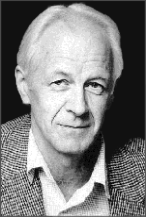Our website is made possible by displaying online advertisements to our visitors.
Please consider supporting us by disabling your ad blocker.
Allan Wilson (biologist)
Allan Wilson | |
|---|---|
 Allan C. Wilson (courtesy of the Allan Wilson Centre for Molecular Ecology and Evolution) | |
| Born | Allan Charles Wilson 18 October 1934 Ngāruawāhia, New Zealand |
| Died | 21 July 1991 (aged 56) Seattle, United States |
| Citizenship | New Zealand |
| Education |
|
| Known for | Molecular clock Mitochondrial Eve |
| Awards | MacArthur Fellowship |
| Scientific career | |
| Fields | |
| Institutions | University of California, Berkeley |
| Thesis | Control of flavin synthesis by bacteria (1961) |
| Doctoral advisor | Arthur Pardee |
| Other academic advisors | Nathan O. Kaplan |
| Notable students | Svante Pääbo Mary-Claire King Vincent Sarich Rebecca L. Cann Mark Stoneking |
Allan Charles Wilson FRS AAA&S (18 October 1934 – 21 July 1991) was a professor of biochemistry at the University of California, Berkeley, a pioneer in the use of molecular approaches to understand evolutionary change and reconstruct phylogenies, and a revolutionary contributor to the study of human evolution. He was one of the most significant figures in post-war biology; his work attracted a great deal of attention both from within and outside the academic world. He is the only New Zealander to have won the MacArthur Fellowship.[1]
He is best known for experimental demonstration of the concept of the molecular clock (with his doctoral student Vincent Sarich), which was theoretically postulated by Linus Pauling and Emile Zuckerkandl, revolutionary insights into the nature of the molecular anthropology of higher primates and human evolution, and the so-called Mitochondrial Eve hypothesis (with his doctoral students Rebecca L. Cann and Mark Stoneking).[2][3]
- ^ Cann, R. L. (9 July 2014). "Allan Charles Wilson. 18 October 1934 – 21 July 1991". Biographical Memoirs of Fellows of the Royal Society. 60: 455–473. doi:10.1098/rsbm.2013.0006.
- ^ Matisoo-Smith E, Matisoo-Smith L, Horsburgh KA (2012). DNA for Archaeologists. California, US: Left Coast Press, Inc. pp. 14–16. ISBN 978-1-59874-681-5.
- ^ Cann RL (1993). "Obituary: Allan C. Wilson, 1935–1991". Human Biology. 65 (3): 343–358. PMID 8319940.
Previous Page Next Page


